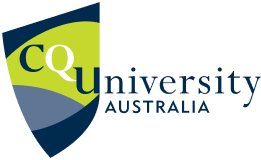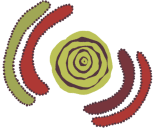Law degree enhances Larry’s important psychology business
By Greg Chapman
CQUniversity’s Law degree has complemented Dr Larry Cashion’s psychology training and helped bolster his vital Melbourne psychology practice, Enable+.
As part of Indigenous Business Month, CQU spoke to the proud Barkindji (Paakantyi) man about how his Law studies continue to support his role as a consultant psychologist, helping disadvantaged people.
Dr Cashion started his Bachelor of Laws in Cairns in 2017, but he admits it might never have happened if not for his wife, who was studying Psychological Science at CQU at the time.
“Importantly, my wife studied psychology at CQU, and she highly recommended the University,” he said.
“I started my degree in Cairns. However, family in Melbourne needed us nearby and we relocated in my second year. The way the course was designed and taught, allowed me to complete the degree through distance education and sit exams at the Melbourne CQU campus.
“I worked full-time throughout my studies and the flexible options available to CQU students was extremely helpful.”
Dr Cashion completed his psychology degree in 2001 and has practiced continually since 2003.
“From the beginning, I wanted to work with people who experienced social disadvantage and disability (often both),” he said.
“My current business is a psychology practice in Victoria. Most of my work is with clients with disabilities, including those with profound challenges. A big part of my role is behaviour support, where I work with clients, their families, and providers to limit the use of restrictive practices. Knowledge of the law certainly helps in that regard. I also complete clinical, neuropsychological and forensic assessments that are related to my scope of practice.
“I have an adult son with autism and watched him grow into a fine young man by having access to a great school and living in a safe environment. My parenting interventions come straight from years of practice with my own child, along with my professional training.
“As the years have gone by, I have watched disability come into the public and government consciousness. Early intervention funding for autism grew into the NDIS, which is where I do most of my current work. However, over time the pressure on services has been increased by frequent changes in government policy and funding.
"I was working with people to assist with disability support applications when the rules were changed. Then the NDIS started making decisions that made the lives of disabled people significantly harder.
“I felt as a psychologist in my early career that I had a lot of influence to do good. I grew to feel that the better route to assist disadvantaged people across welfare and disability systems was through the law. Gaining my practicing certificate is the next step to making a difference through law.”
He said he received much-needed assistance from CQU’s Indigenous Student Support during his Law studies.
“I gratefully received two scholarships to purchase texts from the book shop through Indigenous Support. I cannot overstate how impressed I was with staff from Indigenous Support reaching out by email to offer support, which was all relevant to the student experience,” he said.
He said while finding a balance between running a business and being a practicing psychologist was challenging, it still had its rewards.
“Until about two years ago ‘balance’ was not something that I put at the forefront of my professional life. About 20 per cent of my work life is dedicated to running a business, so that when I was working 60-hour weeks, that meant 12 hours spent on management.
"I have learned through many mistakes that self-care means I have more resources to care for others.
"My next step is to progress my legal career, and I am planning on training as a barrister next year. I’ll certainly be more mindful of my health and welfare during that time,” he said.
He encouraged any First Nations people considering starting a business to persevere.
“As a psychologist I try my hardest to avoid giving advice. Having worked all over Australia, often in areas where there are large First Nations membership in the community, I think one of the biggest barriers to trying out new experiences is a sense of potential shame,” he said.
“I have seen shame prevent many clever and motivated Indigenous people over my career who have said, ‘but what if I fail?’. We learn through both success and failure – the most important thing is that we keep learning.
"I went to university after high school and discontinued before the end of my first semester. I started two other courses and stopped because of other commitments, but when it came to studying psychology, then later law, those previous experiences helped me know what and what not to do to succeed.
“My message is that you can’t learn from not trying something out, so take in what any experience offers, even if you don’t like it or don’t succeed. I could say the same thing about starting a business. However, the freedom to work for yourself has the disadvantages of needing to work hard and, for some, having yourself as your own boss.
“Being recognised by one’s people, one’s family, is more special when it’s unexpected. All I can add is that I am very glad I took my wife’s advice about enrolling in CQU. My experience with the university overall and specifically the Indigenous Support team was universally positive and I felt like I was welcomed into a community by the latter.”


